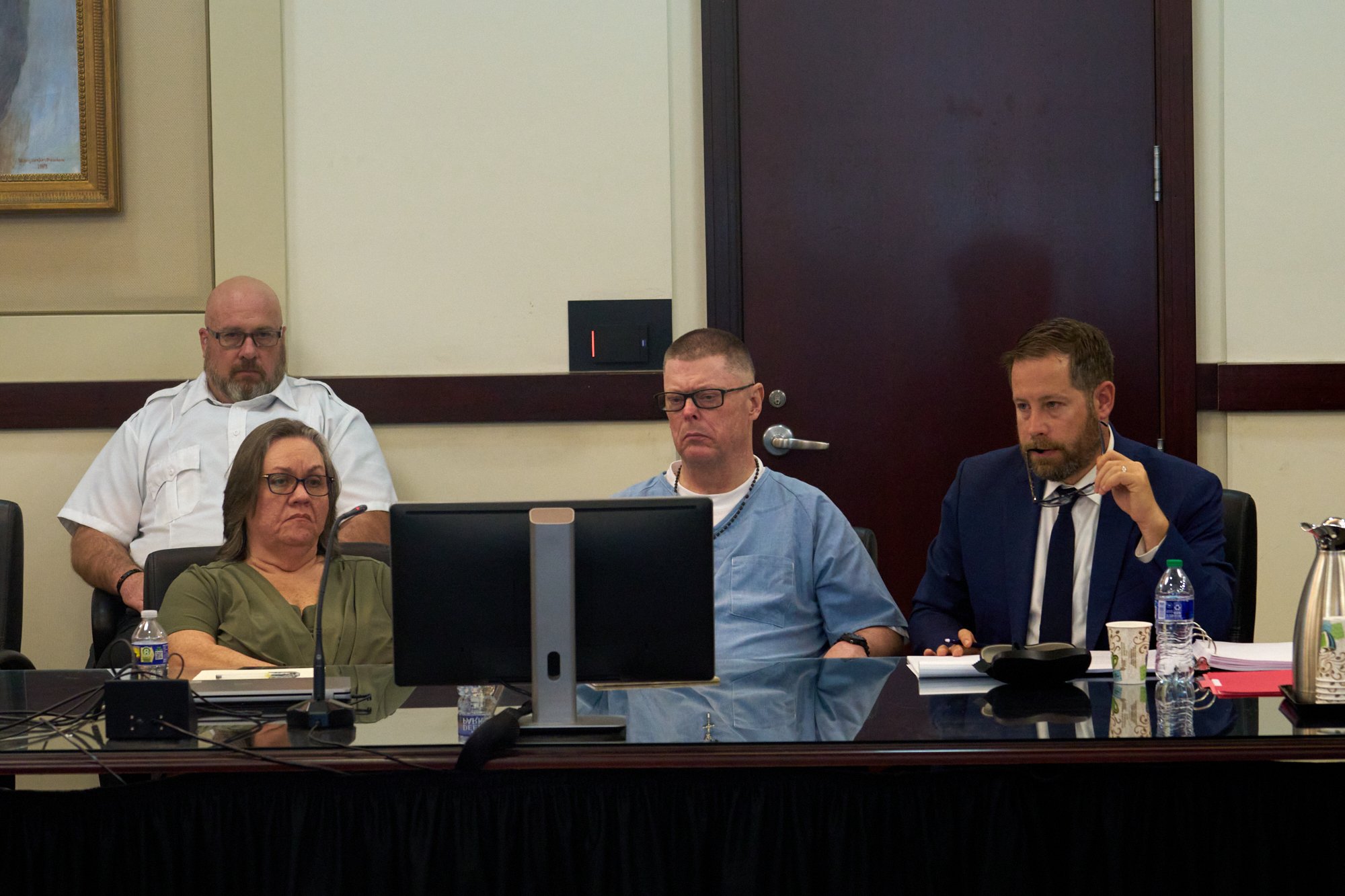Copyright ProPublica

Despite an extraordinary effort by the district attorney’s office in Nashville, Tennessee, to reverse a murder conviction that its own prosecutors won more than two decades ago, the state’s Court of Criminal Appeals upheld Russell Maze’s conviction on Friday. The court said there was insufficient evidence to prove his innocence, even though the original medical examiner in the case — whose testimony helped secure the 2004 conviction — recanted last year, concluding that Maze’s son died of natural causes, not abuse. Maze, whose case was the subject of an in-depth article last year by ProPublica and The New York Times Magazine, was accused of shaking his 5-week-old son, Alex, who later died. The court’s 2-1 decision followed a sweeping, yearlong reinvestigation of the case by a special team within the DA’s office known as a conviction-review unit. After consulting with experts in pathology, radiology, neonatology and ophthalmology, the unit concluded that Alex died not from shaking but from an undiagnosed medical condition. Maze, now 60, was arrested after Alex became nonresponsive in the spring of 1999. He has been behind bars ever since and is serving a life sentence. Maze stood trial twice, and in both proceedings, prosecutors presented evidence they said showed Alex was a victim of shaken baby syndrome. The diagnosing doctor, Suzanne Starling, told jurors that internal bleeding around Alex’s brain and eyes indicated that he endured a ferocious act of violence by shaking. “You would be appalled at what this looked like,” she testified at Maze’s first trial. So forceful was the shaking, she added, that “children who fall from three or four floors onto concrete will get a similar brain injury.” But in the years since Alex was rushed to the emergency room, doctors and researchers found that the symptoms once considered to be the hallmarks of shaken baby syndrome — brain swelling and bleeding around the brain and from the retina — are not always signs of abuse. Long regarded as definitive proof of shaking, they are now understood to have other causes, including accidental falls, illness, infection and congenital disorders. In March 2024, the conviction-review unit — along with attorneys for Maze and his wife, Kaye — presented their findings at a two-day evidentiary hearing. Kaye, who wasn’t home with her husband when their son became unresponsive in 1999, was nonetheless charged with aggravated assault. Told that an open criminal case could hinder her efforts to regain custody of her son, who did not die immediately, she entered an Alford plea to a reduced felony charge — a plea that allows defendants to accept punishment while maintaining their innocence. At the hearing, District Attorney Glenn Funk urged the court to overturn their convictions. “Every single medical expert, using current science, confirms that Russell and Kaye Maze are actually innocent of the crimes for which they were convicted,” he said. “It is my duty as district attorney to ask the court to vacate these convictions.” The director of his office’s conviction-review unit, Sunny Eaton, was even blunter. “The state got this wrong,” she told Judge Steve Dozier. Dozier had a long history with the case, having presided over Maze’s trials, appeals and postconviction proceedings. (He also signed off on Kaye’s plea agreement, which spared her a prison sentence.) Medical experts testified at the 2024 hearing that Alex’s symptoms were the result of an undiagnosed medical condition. But Dozier gave this new testimony no more weight than the original testimony from witnesses like Starling, writing that it did not reflect a new scientific consensus — only “new ammunition in a ‘battle of the experts.’” The Court of Criminal Appeals’ decision on Friday upheld that ruling, determining that the Mazes “failed to establish that their scientific evidence is truly ‘new’ or that this evidence provides clear and convincing proof that Mr. Maze is actually innocent.” The opinion gave only perfunctory consideration to a watershed moment in the case: In September 2024, the original medical examiner, who determined Alex’s death to be a homicide, said he’d been wrong. Before reaching this conclusion, Dr. Bruce Levy reviewed medical records that the conviction-review unit provided to him — many of which he did not recall having seen before. They included Alex’s records from his premature birth until death and Kaye’s obstetric records, which offered essential context about the health challenges Alex (whose legal name was Bryan) faced before he stopped breathing. “I recant my trial testimony that Bryan Maze suffered from shaken baby syndrome,” Levy stated in a sworn affidavit. “If called to testify now, I would assert Bryan Maze’s brain, at the time of his death, showed no indication, to a reasonable degree of medical certainty, of prior trauma or abuse. Instead, the residual brain lesions viewed at autopsy more likely than not resulted from a natural disease process.” He went on to state that he would now classify the child’s manner of death as “natural.” Levy’s recantation appeared to carry particular weight with one of the three judges on the Court of Criminal Appeals who heard oral arguments in the Maze case. In a separate opinion accompanying Friday’s ruling, Judge Tom Greenholtz devoted 14 pages to arguing that Levy’s reassessment of the evidence demanded serious consideration. “When the state’s own chief medical examiner recants the very testimony that established the cause and manner of death, the effect is not just to raise new questions. If credited, it calls into doubt the foundation of the trial and the reliability of the post-conviction court’s findings, which relied on that same testimony.” Greenholtz went further, adding, “Dr. Levy’s revised opinion is that no homicide occurred — that the child died of natural causes. This goes beyond mere disagreement among experts about the interpretation of ambiguous findings. It represents a determination by the State’s own chief forensic pathologist that the factual predicate for a homicide prosecution was absent.” Maze can apply for permission to appeal to the Tennessee Supreme Court, though the court grants review in only a small fraction of cases. The Court of Criminal Appeals’ ruling stands as an outlier among recent appellate opinions, in which shaken baby syndrome has come under scrutiny. Over the last 18 months, judges in Minnesota, Michigan, Texas, Georgia and New Jersey have sided with defendants challenging their shaken baby convictions. In October, the Texas Court of Criminal Appeals granted a stay of execution to Robert Roberson, who was prosecuted for his 2-year-old daughter’s death; the stay was granted under the state’s junk science law, which allows courts to reconsider convictions that rest on scientific evidence now regarded as unreliable or outdated. The Maze case highlights a broader national reevaluation of shaken baby syndrome. Forty-one people whose convictions involved the diagnosis are currently listed on the National Registry of Exonerations. “Russell Maze remains in prison for a crime he did not commit,” said Jason Gichner, executive director of the Tennessee Innocence Project and Maze’s lead attorney. “Every medical expert presented at the recent post-conviction hearing — both for the prosecution and defense — agreed this is not a case about abuse. Russell needs to come home. We are not going to stop fighting until that day comes.”



